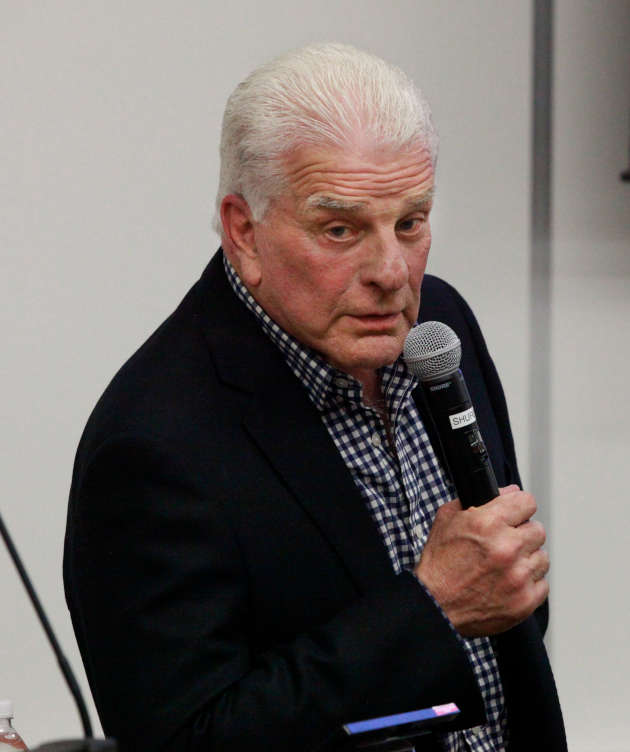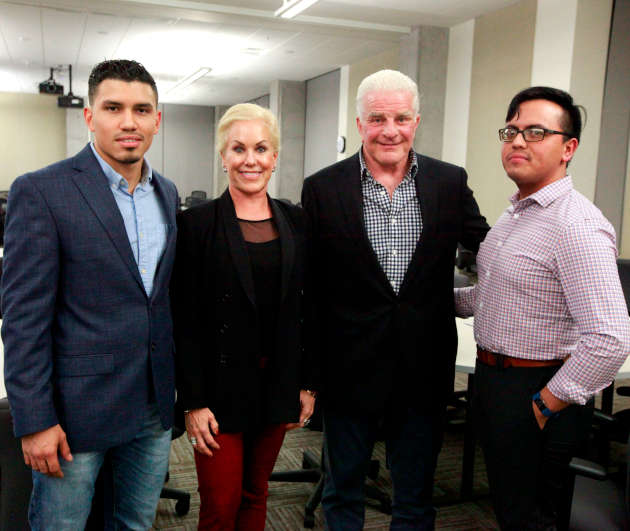
Legendary Dallas restaurateur Phil Romano recently told students at the Naveen Jindal School of Management that what they need to succeed is less texting and more talking.
“Young people today have a hard time communicating because they’ve got the disease of the smart-phone: They just want to text,” he said. “You’ve got to converse and sell yourself. You’ve got to talk to people and have personality.”
Romano spoke Nov. 14 at an informal discussion co-sponsored by the UT Dallas Real Estate Club. The creator of such restaurant concepts as Fuddruckers and Macaroni Grill, Romano talked about his brand new venture, the Network Bar, a members-only, speak-easy-style eatery in Trinity Groves, the dining theme park he co-founded in West Dallas in 2013.
“If you’re too young to join a country club, where can you sit down and talk to a mentor?” he said. “There’s a need for a place like the Network Bar. It’s a good, fun way to do business and make personal contact.”
While he is best known for his restaurants, Romano also was one of a group of early investors in heart stents. He said he invested $250,000 and “that made us over $700 million in six or seven years.” Today, he spends most of his time on philanthropy, including his Dallas-based hunger-relief charity Hunger Busters.
“Every morning, I wake up and try to get people M.A.D., which stands for ‘Make a Difference,’” he said.

“I’m attracted to the passion he has — not just for business, but for helping younger generations and for giving back to the community,” said JSOM senior Endy Lirá, a student member of The Real Estate Council, a North Texas commercial real estate professionals’ group. Lirá invited Romano to speak at the Jindal School.
George DeCourcy, associate director of Jindal School’s Real Estate Concentration, applauded Lirá’s efforts to bring Romano to UT Dallas.
“It’s important for business students to network with noteworthy professionals like Phil Romano. He’s an entrepreneur who’s also involved in real estate and the retail side of things — he hits a lot of the goals we have in our program,” DeCourcy said.
Romano said the defining trait of his 50-plus-year career is his ability to sniff out problems and solve them. When he started, the main problem with restaurants was they were dull.
“People want things that are high-energy, exciting and fresh, and that’s what I provided,” he said.
Today’s students can become tomorrow’s business moguls by confronting “sacred cows and the people who’ve been in an industry a long time who don’t want to change,” he said.
“How do you become an entrepreneur? You learn the business inside-outside; you understand the problem;, you come up with a unique solution; and then you box the solution and sell it quickly back to the industry,” he said. “That makes you an entrepreneur: You’re solving a problem.”






